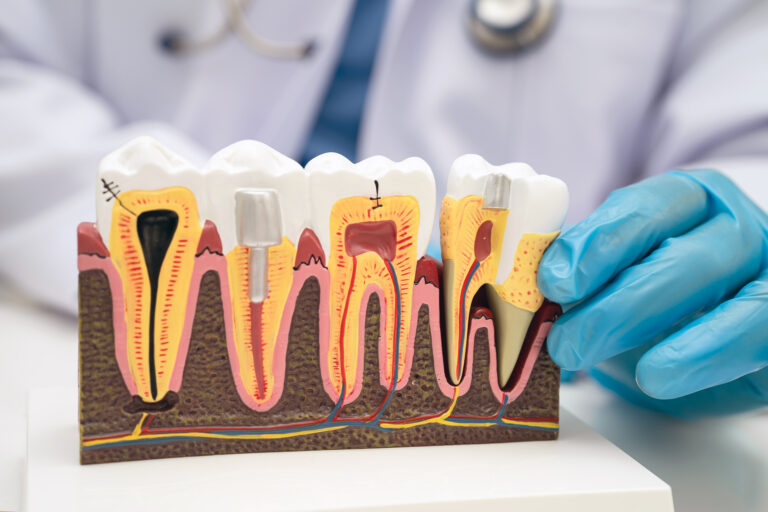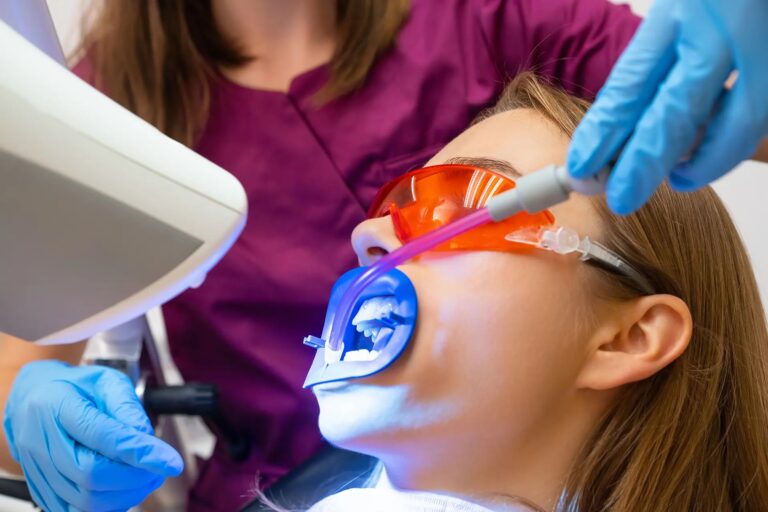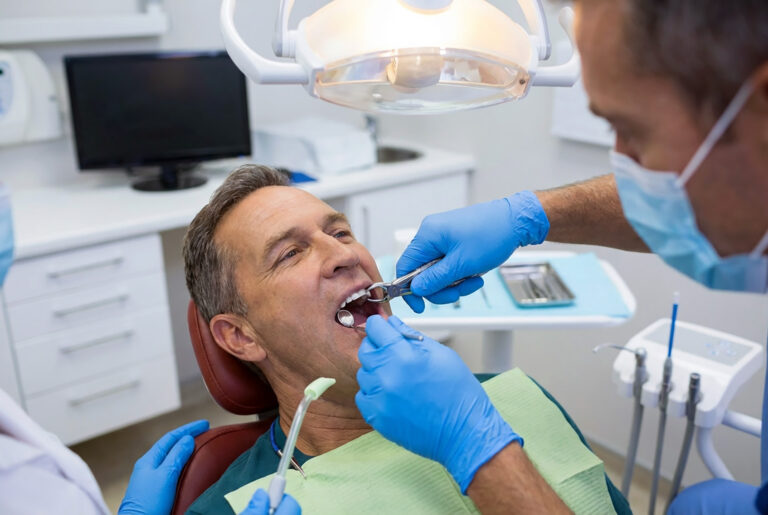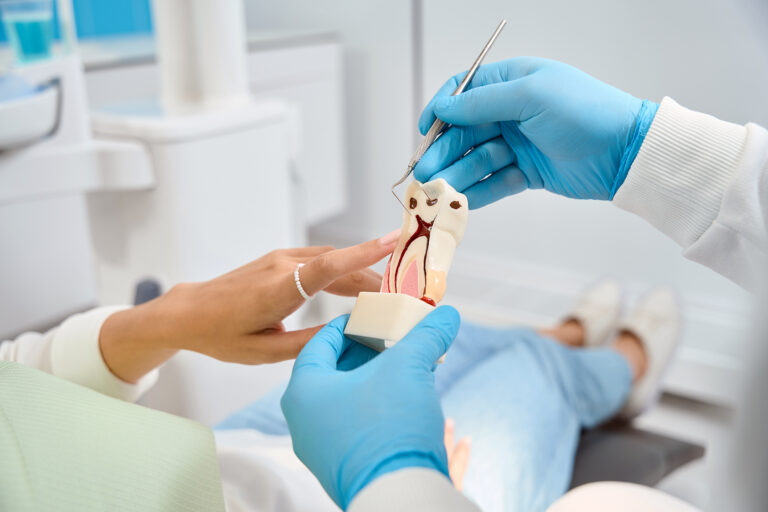You may have heard of wisdom teeth, or third molars, the last set of molars in late adolescence or early adulthood. Located at the back of the mouth, these teeth don’t have enough room to come in properly due to the smaller size of modern human jaws. This lack of space often leads to impacted wisdom teeth, where the teeth are partially or completely trapped under the gum tissue, often growing sideways. Wisdom teeth can also be partially erupted and need to be extracted via wisdom tooth surgery. Thankfully, modern dentistry has evolved to make this process as comfortable and efficient as possible.
What Are Wisdom Teeth?
Wisdom teeth erupt at the back of the mouth between the ages of 17 and 25. While their function is to provide extra chewing power, these latecomers often cause more trouble than benefit due to the limited space in modern human jaws.
The best way to monitor the development of wisdom teeth is through regular dental checkups with X-rays. These checkups help dentists determine if extraction is necessary to maintain good oral hygiene and to prevent complications.
Removing wisdom teeth is not a one-size-fits-all decision. It depends on the individual’s oral health and medical history. Consulting a dentist or an oral maxillofacial surgeon is essential to make an informed decision tailored to your needs.
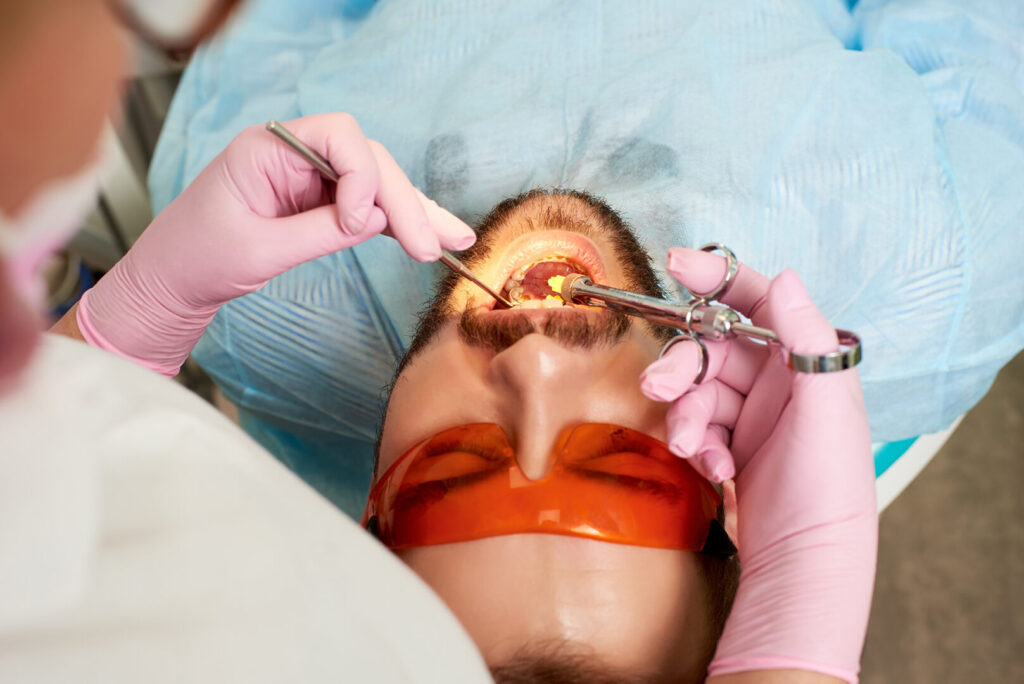
What Are Impacted Wisdom Teeth?
In Singapore, about 70% of adults between 20 and 40 have at least one impacted wisdom tooth. When wisdom teeth become impacted, they can trigger a chain of dental problems, including pain, inflammation, infection, and the formation of fluid-filled cysts and/or benign tumours.
Impacted wisdom teeth create spaces where food particles and bacteria can accumulate, increasing the risk of tooth decay and gum disease. No matter how diligent a brusher you are, these pockets are difficult to clean properly, compromising your oral hygiene. Impacted wisdom teeth can also damage neighbouring teeth, leading to further dental problems. For some patients, impacted upper wisdom teeth can exert pressure, contributing to recurrent sinus infections.
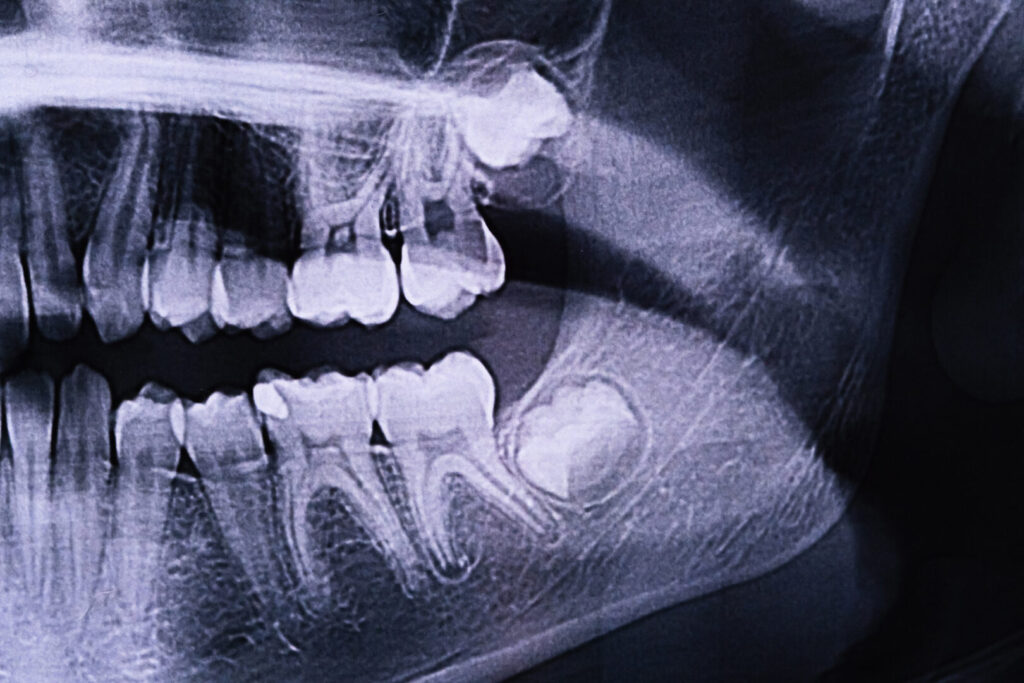
When Is Wisdom Tooth Surgery Necessary?
To be clear, wisdom tooth extraction is not a necessary eventuality. If your wisdom teeth have adequately erupted, your jaw has sufficient space for them, and you can maintain good oral hygiene, your dentist might not recommend extraction. However, if any of the following affect you, you may likely benefit from wisdom tooth surgery:
- Teeth are impacted, and the wisdom teeth are causing pain.
- There is evidence of infection or inflammation.
- Cysts or tumours have developed.
- Adjacent teeth are being damaged.
- Orthodontic treatment is being compromised.
- Preventive measures are needed to avoid future complications.
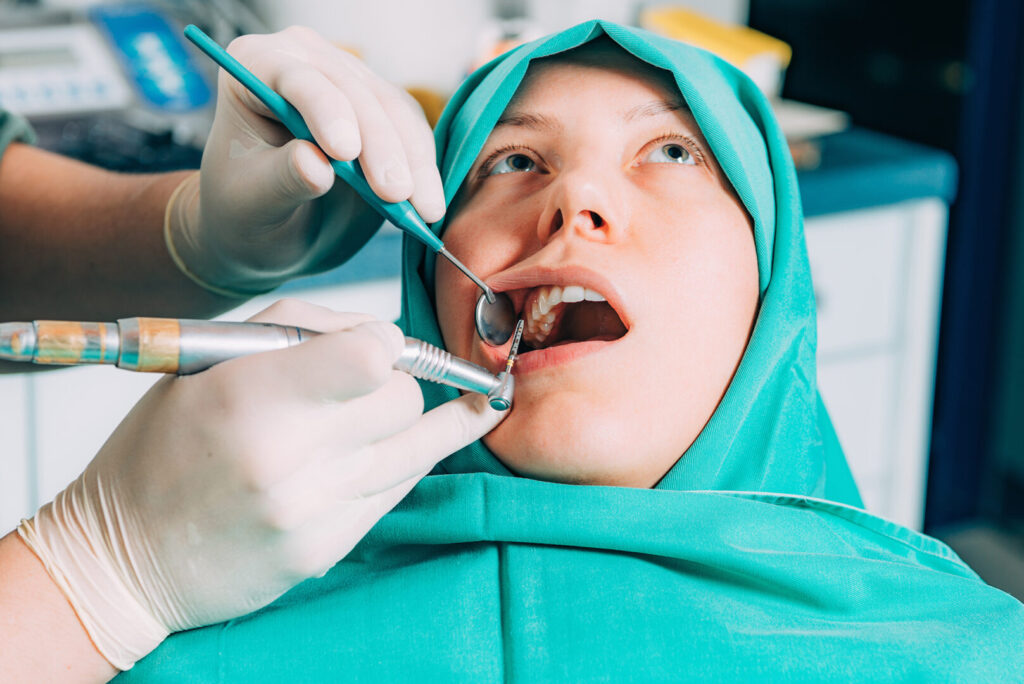
Types of Extraction for Wisdom Teeth
There are two main types of wisdom tooth extraction: simple and surgical.
A simple extraction is typically used for fully erupted wisdom teeth. In this straightforward procedure, local anaesthetic is administered to numb the area, and the tooth is then gently removed using specialised instruments.
A surgical extraction, or wisdom tooth surgery, removes impacted wisdom teeth. This more complex procedure involves making an incision in the gum to access the tooth. Sometimes the surrounding bone needs to be removed, and the tooth may need to be divided into smaller pieces for easier extraction.
The choice between surgical and straightforward extraction depends on the position and condition of the wisdom tooth and the individual’s overall health. In either case, you want a trained dental professional who can give you the best advice and conduct the extraction safely and effectively.
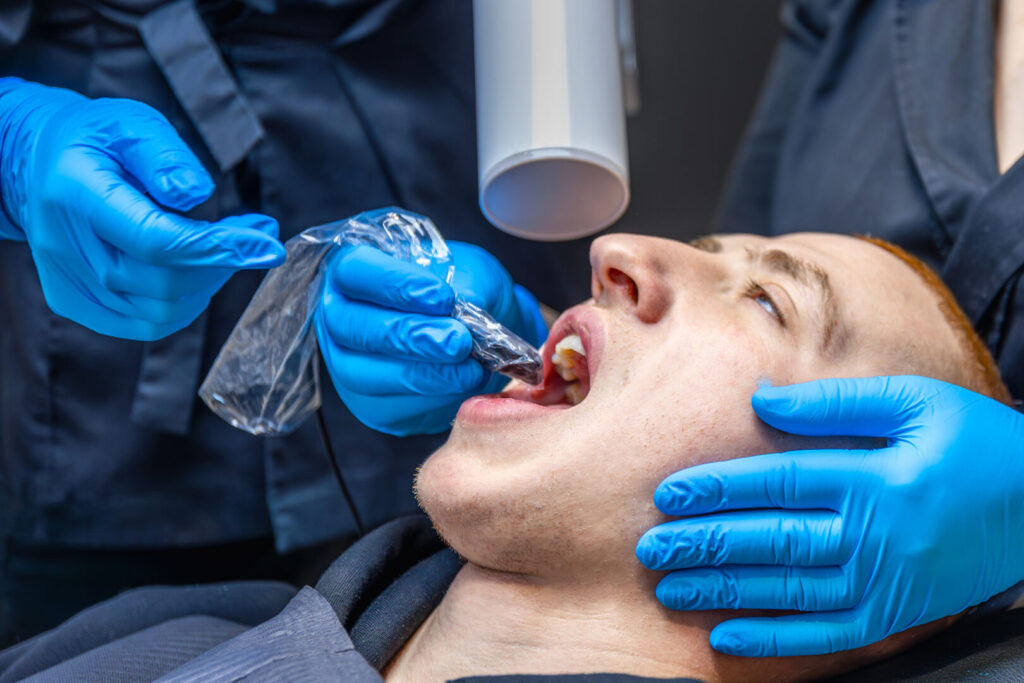
Wisdom Tooth Surgery Procedure
Wisdom tooth surgery in Singapore is usually performed as an outpatient under local anaesthesia. For patients with significant anxiety, intravenous sedation options are available.
First, your dental surgeon will discuss treatment options and the risks involved. Once you’ve made an informed decision, the area around the wisdom tooth is numbed using local anaesthetic, often preceded by a surface numbing gel to ensure nearly pain-free delivery of the anaesthetic.
To access the impacted wisdom tooth, the surgeon makes an incision in the gum tissue. Sometimes, the surrounding bone may need to be removed using specialised surgical drills. You shouldn’t feel pain during the procedure, but you may feel pressure or vibrations.
Depending on its position and condition, the wisdom tooth may need to be extracted in multiple pieces. The surgeon uses specialised instruments to apply controlled pressure to deliver the crown and roots of the tooth. Once the entire wisdom tooth is removed, the site is thoroughly cleaned and inspected. Special packing material is placed to facilitate blood clotting, and stitches are applied to promote healing.
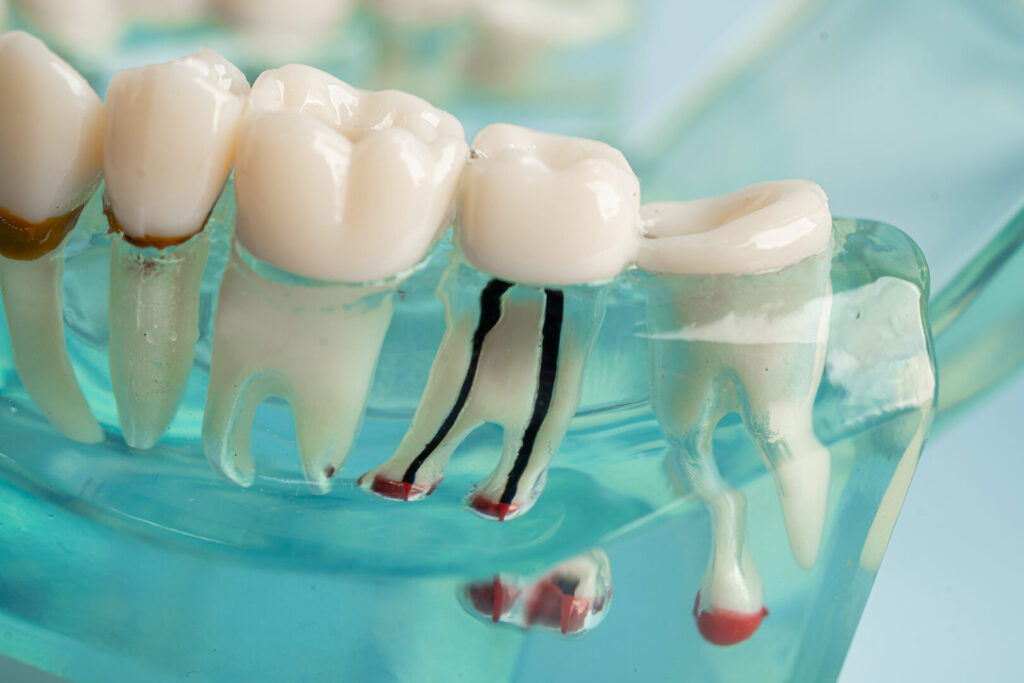
Post-Surgery Recovery and Care
Proper aftercare is crucial for a smooth recovery after wisdom tooth surgery. Most patients experience some degree of bleeding, swelling, and discomfort, which usually peak within the first 48 to 72 hours after surgery. Facial swelling is also especially common and can be managed by applying ice packs to reduce discomfort.
Your dental surgeon will give you detailed aftercare instructions, which may include:
- Taking prescribed painkillers and using an antimicrobial mouthwash
- Applying ice packs externally to reduce swelling
- Resting adequately and avoiding strenuous activities
- Eating a soft diet for several days
- Avoiding actions that could dislodge the blood clot (e.g. smoking, drinking through straws, etc.)
- Gently rinsing with warm salt water after 24 hours
- Continuing good oral hygiene practices
A follow-up appointment will usually be scheduled 7-10 days after the procedure to monitor the healing progress and remove any non-dissolving stitches.
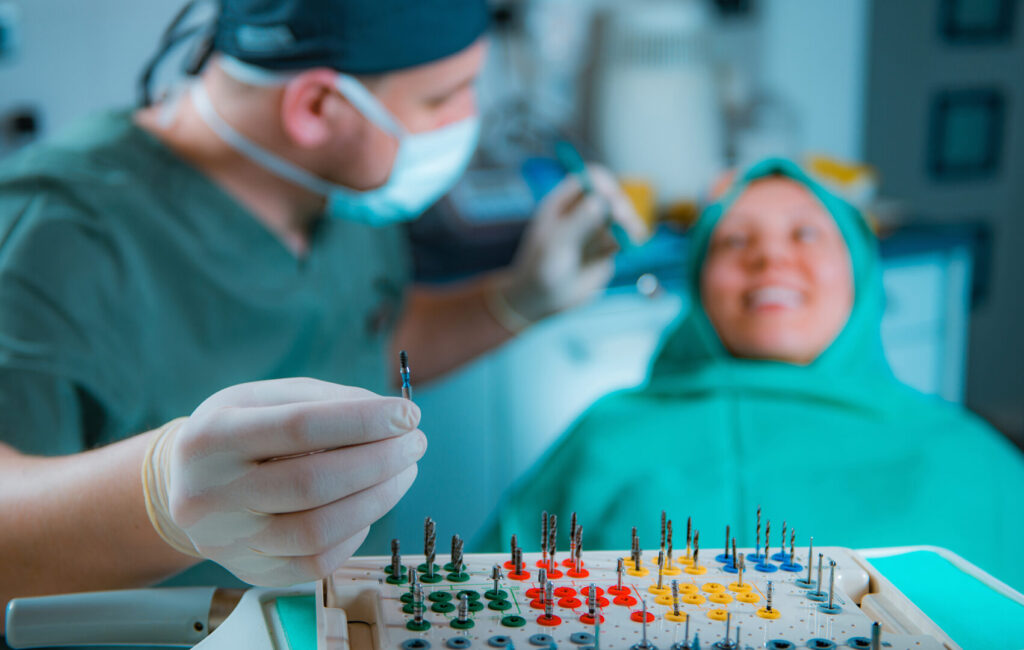
Wisdom Tooth Extraction Complications
While wisdom tooth extraction is a common procedure, it’s not without complications. One such complication is dry socket, which occurs when the blood clot that forms over the tooth socket is dislodged. This exposes the bone and nerve endings, causing significant pain and discomfort.
Another risk is infection, especially if bacteria enter the extraction site. Diligently following post-operative instructions can minimise this risk. Nerve damage, although rare, is another serious complication that can result in numbness, tingling, or pain in the tongue, lip, or cheek.
In both cases, contact your dentist immediately. They can evaluate the situation and determine the best action plan for a smooth recovery.
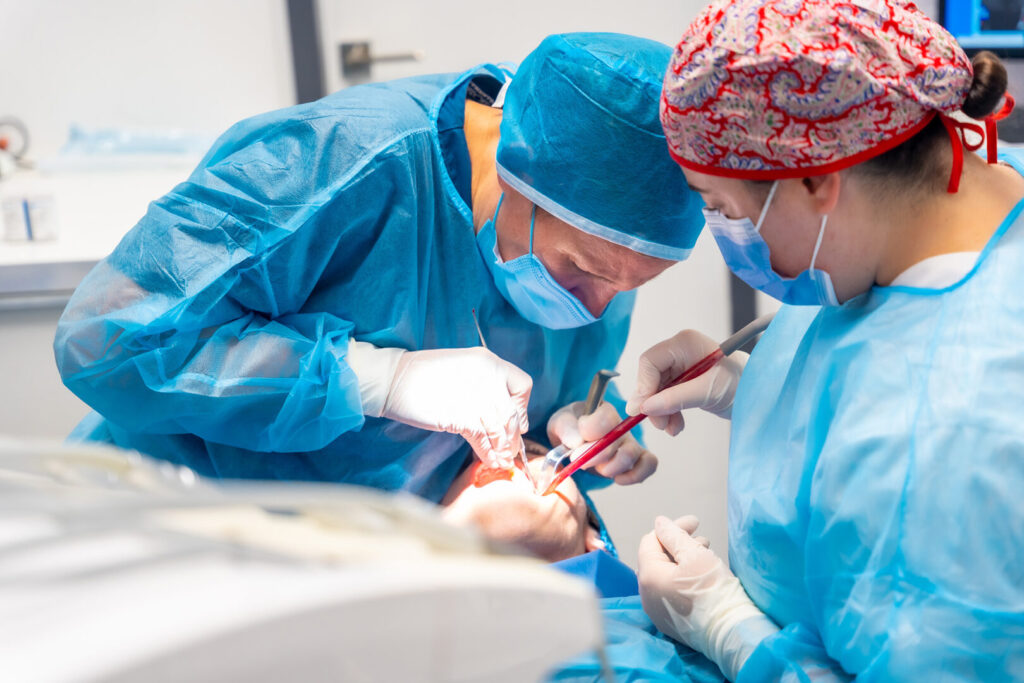
Wisdom Tooth Surgery Cost in Singapore
The cost of wisdom tooth surgery in Singapore varies depending on the case’s complexity, the number of wisdom teeth to be extracted, and the dental practice. At TEETH @ Tiong Bahru, wisdom tooth surgery prices range from $872.00 to $1,526.00.
For Singaporeans and Permanent Residents, MediSave can help offset some of the costs associated with wisdom teeth surgery. Medisave claims can be made for surgical procedures, helping to reduce out-of-pocket expenses for patients. As an accredited provider by the Ministry of Health and the Central Provident Fund Board, TEETH @ Tiong Bahru enables eligible patients to claim between $350.00 and $1,250.00 per tooth, depending on the complexity of the treatment.
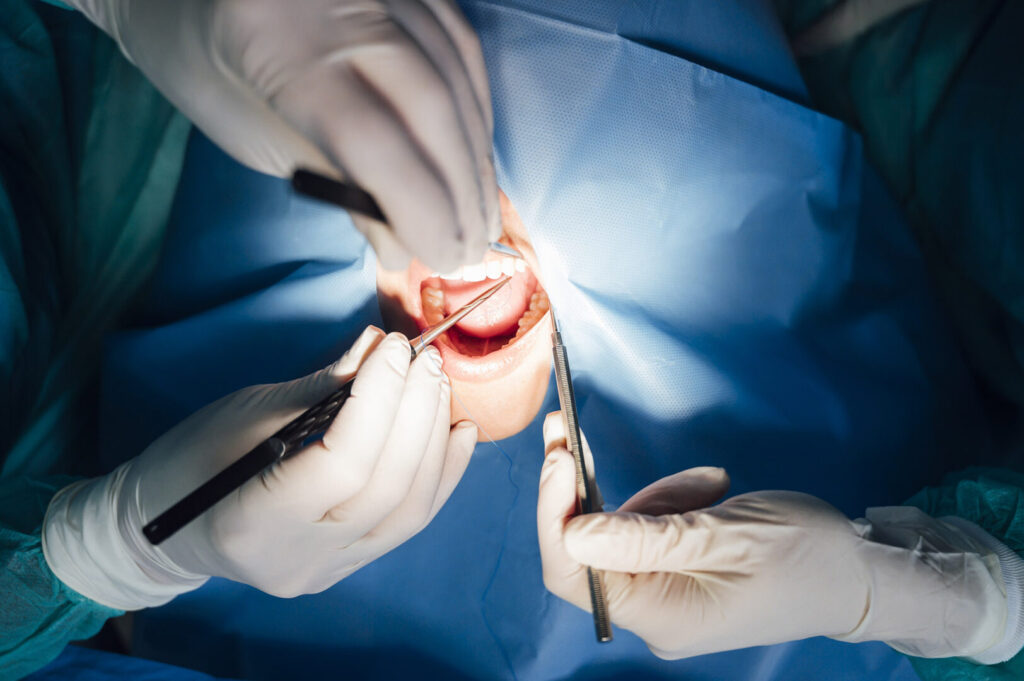
Book an Appointment
Regular dental check-ups are essential for monitoring wisdom tooth development and identifying potential issues before they become painful complications. With 6-monthly dental appointments, your dentist can track changes using clinical examinations and X-rays and intervene when necessary.
If you’re experiencing wisdom tooth pain or have concerns about your third molars, we invite you to book a consultation with our experienced team at TEETH @ Tiong Bahru. Our specialists will assess your situation, discuss whether wisdom tooth surgery suits you, and provide a breakdown of treatment costs. Contact us today to take the first step in resolving your wisdom tooth issues and protecting your long-term oral health.
RELATED WISDOM TOOTH EXTRACTIONS


